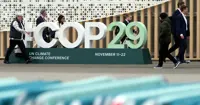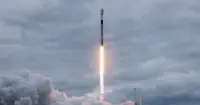China likely to cut controls on interest rates
11 Mar 2014
China is likely to ease controls on interest rates paid on bank savings within two years and allow wider use of its tightly controlled currency for trade and investment, the central bank governor Zhou Xiaochuan said today.
Zhou Xiaochuan's comments come after Chinese leaders pledged to make the slowing Chinese economy more productive by letting market forces play a "decisive role" in the allocation of credit and other resources.
Encouraging competition among lenders for deposits by paying higher rates on savings would put more money in the pockets of Chinese families, which would help achieve official goals of boosting consumer spending and cutting reliance on trade and investment.
"Liberalization of deposit rates, this should be the last step in interest rate marketization," said Zhou at a news conference. "I personally believe it is very possible to realize this within one to two years."
The country's first major announcement on reform of interest rates came in July, scrapping controls on lending rates.
The step would allow borrowers having better credit records to negotiate lower rates with banks, cutting costs for healthy businesses and spurring economic growth.
Meanwhile, the Chinese government revealed plans for boosting its defence budget by 12.2 per cent to 808.2 billion yuan (about $132 billion) in 2014. Chen Zhou, deputy to the 12th National People's Congress (NPC) said, China's increase in military spending was in line with the development level of the Chinese economy.
According to Chen Zhou, China's national defence spending had maintained a moderate growth pattern in recent years, and had always followed two basic principles: One was that national defense spending needed to increase in line with economic development. The other was that national defence spending needed to meet the demands of national defence.
He added, the present increase in national defence spending of China represented compensation for previous serious shortfalls.
He added, along with the rapid development of the economy, the government had the means for the expansion of its investment in the military and national defense, and the growth in national defense spending had now entered a phase of "mutual promotion and concerted development between national defense and the peacetime economy".
.webp)

.webp)


.webp)

























